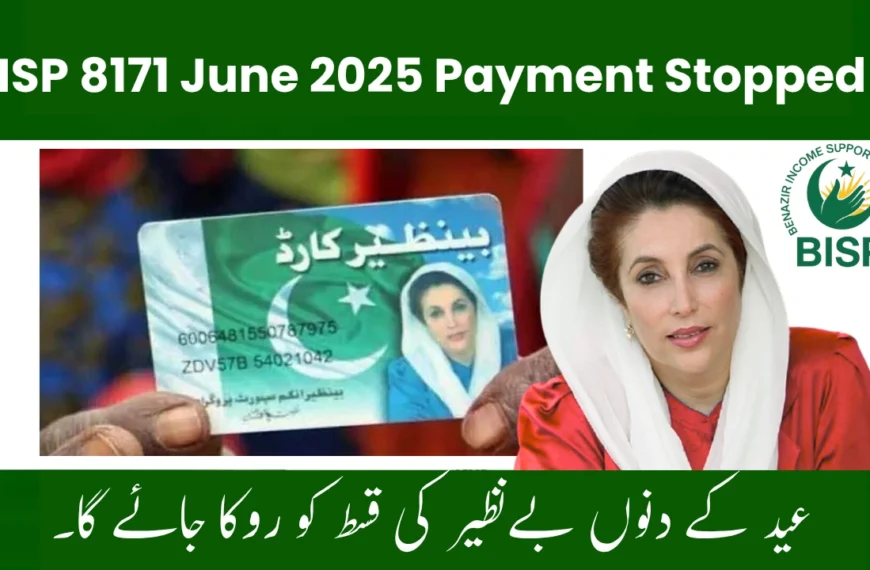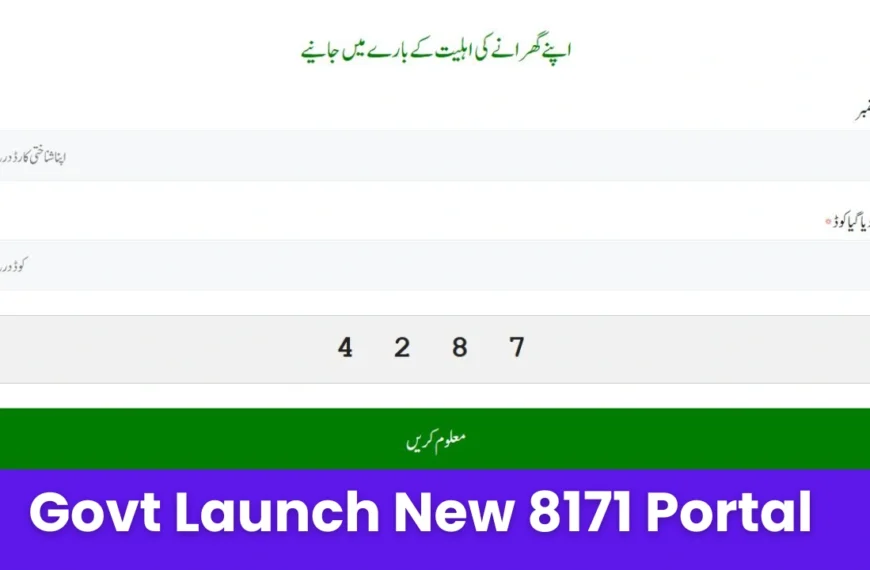In a major update for June 2025, the Benazir Income Support Programme (BISP) has started blocking payments to women whose Poverty Means Test (PMT) scores exceed 32. If you or someone you know recently got a message from 8171, it’s important to understand what it means and what steps to take next.
Why Are BISP Payments Being Stopped in 2025?
Starting this month, thousands of women across Pakistan have received SMS notifications from 8171. These messages inform them that their dynamic survey results show a PMT score higher than the eligibility cutoff—32. Because of this, their BISP payments have been stopped.
This change is part of BISP’s mission to make sure financial aid only goes to the neediest families. The idea is simple: if your financial situation has improved or your poverty score is too high, you’re no longer eligible.
So, what does this mean in simple terms? It means that women who were previously receiving monthly support may now be disqualified—even if they’ve been part of the program for years.
What Is a PMT Score and Why Does It Matter?
The PMT score, or Poverty Means Test score, is a number that shows how poor a household is. It’s calculated by the government based on:
-
Household income
-
Number of family members
-
Quality of housing
-
Whether you own land, a car, or any other valuable assets
A lower PMT score indicates extreme poverty, while a higher score suggests better financial conditions. The government has set 32 as the cutoff. So, if your score is above 32, you’re considered not poor enough for BISP.
This might sound harsh, but the goal is to make sure funds reach those who are truly struggling to survive.
Also Read: CM Maryam Nawaz Distributes Eid Gifts to Special Children Across Punjab
How Many Women Are Being Affected?
The number of women being blocked from the program is massive. Here’s a quick breakdown by region:
-
Punjab: 2.7 million women
-
Sindh: 1.3 million women
-
Khyber Pakhtunkhwa (KP): 770,000 women
-
Balochistan: 450,000 women
-
Ex-FATA: 280,000 women
-
Azad Jammu & Kashmir (AJK): 170,000 women
-
Gilgit Baltistan: 82,000 women
-
Islamabad: 27,000 women
This means millions of families will no longer receive monthly support, making it a significant shift in BISP’s policy.
Got Blocked? Here’s What You Should Do Next
If you’ve received an SMS that says you’re no longer eligible, don’t lose hope. Here’s what you can do:
-
Visit Your Nearest BISP Tehsil Office: Bring your original CNIC and any documents that prove your financial hardship (like utility bills or rent agreements).
-
Request a Recheck: You can ask for your survey to be reviewed or updated, especially if your circumstances have changed recently—like a job loss or new family member.
-
Stay Calm: Disqualification doesn’t mean you’re permanently out of the system. Many women have been re-included after a review.
BISP teams are available to assist you, so don’t hesitate to ask for help. Being proactive is key.
How to Check Your Eligibility Status Online or via SMS
You can check your current BISP status easily using two simple methods:
-
By SMS:
-
Type your 13-digit CNIC number
-
Send it to 8171
-
Wait for the reply with your eligibility update
-
-
Online through the BISP Portal:
-
Go to 8171.bisp.gov.pk
-
Enter your CNIC number and the captcha
-
Click “Check” to see if you’re still eligible
-
This quick check can give you peace of mind or let you know if action is needed.




